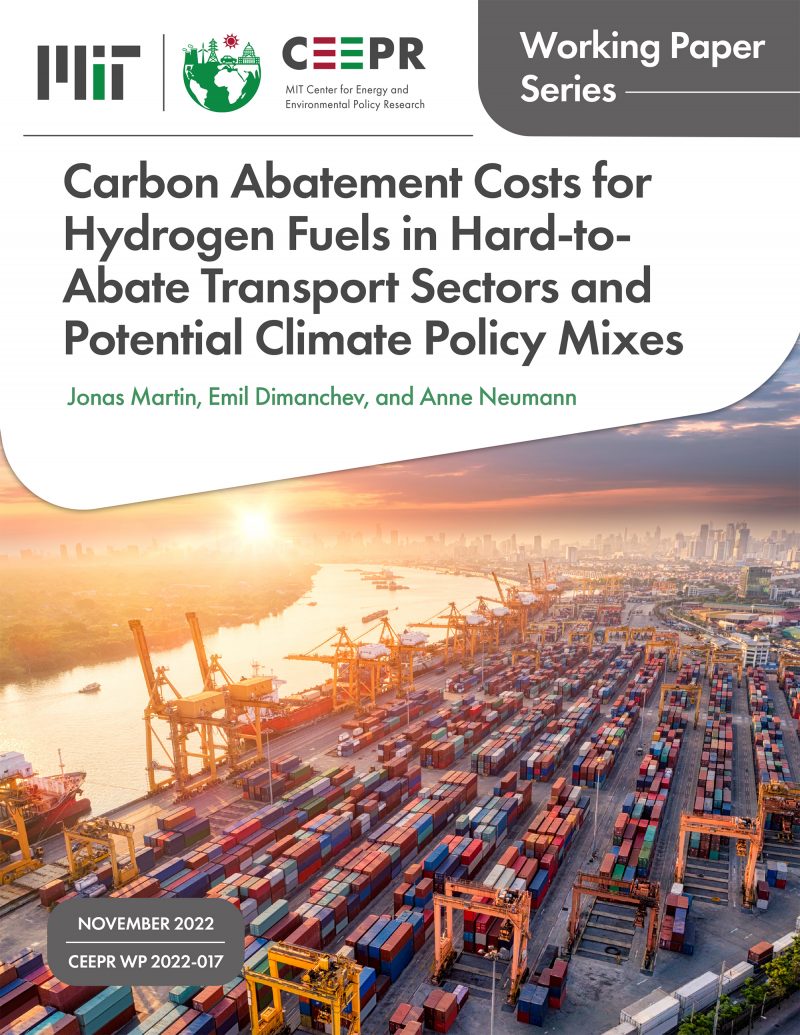Carbon Abatement Costs for Hydrogen Fuels in Hard-to-Abate Transport Sectors and Potential Climate Policy Mixes
Jonas Martin, Emil Dimanchev, and Anne Neumann
November 2022
Deep decarbonization targets require emission reductions in “hard-to-abate” sectors that have until recently received little attention, including freight trucking, shipping, and aviation. Here, we apply a holistic cost model of hydrogen value chains to estimate abatement costs of replacing fossil fuels with renewable hydrogen, ammonia, or e-fuel for freight applications across trucking, shipping, and aviation. This work also analyzes how different climate policies—including carbon pricing, subsidies, and de-risking policies that influence the cost of capital—impact the competitiveness of hydrogen fuels. We estimate abatement costs of €530-1,345/tCO2 in 2020, depending on the electricity source, transport mode, and type of hydrogen fuel. Concerted efforts by governments and industry could decrease these costs to €50-493/tCO2 in 2050. These values indicate how high carbon prices must be for clean fuel use to break even. Existing carbon prices would play a partial role in incentivizing adoption if they were to be extended to these sectors. We conclude that subsidies across the value chain are likely necessary to incentivize adoption. De-risking has material impacts on economic feasibility, particularly for hydrogen due to its relative capital intensity. E-fuel costs are more sensitive than other hydrogen fuels to fuel production subsidies.



